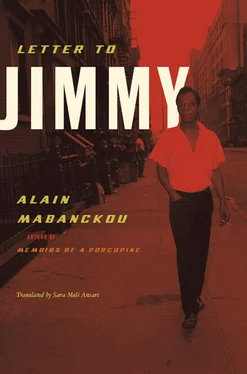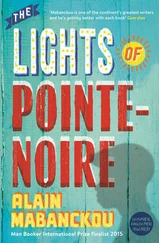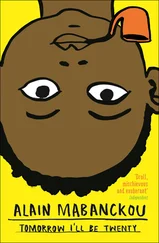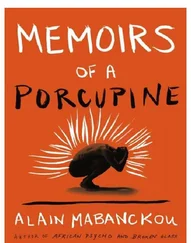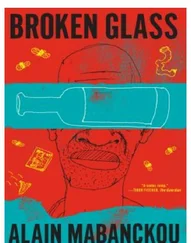Alain Mabanckou
Letter to Jimmy
But more important than that, perhaps, was the relationship between American Negroes and Africans and Algerians in Paris. . It didn’t demand any spectacular degree of perception to realize that I was treated, insofar as I was noticed at all, differently from them because I had an American passport. I may not have liked this fact: but it was a fact. . if I were an African, [Paris] would have been a very different city to me.
JAMES BALDWIN, in an interview from December 29, 1961, in Conversations with James Baldwin, University Press of Mississippi, 1989.
foreword, the Santa Monica wanderer
As the seagulls desert Santa Monica State Beach, and a small boat pitches on the waves in the distance, I sense your presence as I do each time I wander here. I fix my eyes on the horizon, watch the fading of the sun, and I stretch myself out on the sand. The clouds seem to form shadowy figures — today an elderly woman with an unsteady step.
I want to forget the world around me: the hubbub of the street, images of movies I have recently seen, the books still open on my desk.
In truth I envy the wanderer I see at the other end of Santa Monica beach, a gray beard he has not shaven in years falling to his chest. Never has a stranger so fully captured my imagination, prompting me to trail him, as if I expected him to reveal the key to the mysteries that confront me when I read your work. I cannot stop myself from wondering about his life, with the secret hope that one day I will find a way to speak to him about you. I know that he will take the time to listen to me; he spends his day conversing with invisible beings, throwing his head back in laughter for no apparent reason, urinating at the foot of a tree, forgetting to zip his pants, getting irritated by a flock of gulls, then sits down on his shoes, worn through from wandering. But the strangest thing, Jimmy, is that he will build colossal sand castles, where he must dream of ruling as king of his own fantasies, with his court, his family, his subjects and his guard. Then suddenly he will demolish his kingdom with a nervous kick of the foot, and again return to being a wreck of a man.
Dejected, he will roam over toward the great Ferris wheel of Pacific Park, which ordinarily draws the Santa Monica tourists. I have seen him remove a bowl from a pocket in his ragged clothes and beg until nightfall. He seems like a character lifted straight from the pages of one of your novels!
It is to him, to this wanderer, that I dedicate this letter.
1. a brave mother, and a father who did not love himself
The photo is in front of me, hanging on the wall. Your eyes are the first to capture my attention. Those big eyes — prominent on your face, that once mocked your father, unaware that they would later peer into souls, or that they would pierce through the darkest part of humanity, before closing forever — still hold their power to search deeply, even from the next life.
Eyes lifted skyward, eyebrows raised high. What are you thinking at the moment the photographer focuses his lens on you?
The picture is in black and white.
It looks to me today like an extension of your characters who share your voice, your mannerisms, your laughter, your anger, your exasperation. I linger in vain over your half-smile, a smile no doubt interrupted by the flash as you lifted your head up to the right; I know its mystery will remain.
You wear a white collared shirt with long sleeves, your black tie loosened, a cigarette wedged between your index and middle fingers. Each crease on your face casts a spell. Studying you this way, I sometimes imagine that we are building a dialogue, and that you are listening to me, entertained by my unanswerable questions.
When I turn over the photo — it has become a reflex — I read aloud the few words I have scribbled there: “What’s the weather like in heaven, Jimmy?”
•••
The photo carries me back to the 1920s, to the front of a public building, Harlem Hospital, in New York City. Emma Berdis Jones is twenty-eight years old at the time. On the 2nd of August 1924, she delivers a child out of wedlock, who is, as a result, illegitimate — a bastard. And you, you enter the world through the back door. Your eyes are not bothered by the light; they make out the environment, recording for later the wounds of a torn and quartered society built on a patchwork of “ethnicities.” Some people dominate, direct, decide. Others just endure, abide the ghetto borders, and do not have the right to sit next to the white man on public transportation. .
Emma Berdis Jones is certain that anyone who comes to this world through the back door will rise up one day. However, at this time in her life, her existence is as unstable as it can be. She takes odd jobs. More often than not, she gets placed as a housekeeper. After your birth, she tells herself that her days of wandering are finally over: she left behind Deal Island, Maryland, then Philadelphia, before dropping anchor in New York. It is there that she met David Baldwin, a man who could have been her father, but who agrees to become yours. This is a man whose oldest daughter, from a first marriage, is older than your mother, while his youngest son, Samuel, is eight years your senior. This is the man who gives you your name. And Emma, to whom you dedicate your masterpiece, No Name in the Street , has only one obsession: to give you a name.
What is a name, after all? Almost nothing. But a name says everything, and introduces us to the world.
We wear it with pride if we can attach it to a glorious past. It becomes an embarrassment when it suggests “illegitimacy.” You would not keep your mother’s name, Jones, for very long, since in 1927, three years after your birth, she marries David Baldwin.
On that day, you become James Arthur Baldwin. .
You would keep this name until the end of your days, without ever rejecting or changing it, unlike other stars of African-American history: Malcolm Little (who became Malcolm El Shabbaz, then Malcolm X) or Marcellus Cassius Clay, Jr. (who became Muhammad Ali), or the playwright and poet Everett LeRoi Jones (who became Amiri Baraka).
By keeping the name “Baldwin,” you are aware of perpetuating despite yourself a lineage forged of lurid relationships, domination, whipping, and slavery. You are, in reality, just the “Negro” of some Baldwin, a “white slave owner who, several centuries earlier, had entered into possession of one of the ancestors of David.” 1
Between those who advocate a return to roots — captivated by Pan-Africanist leaders like Marcus Garvey — and black Americans who replace their family name with an X to signal their affiliation with the Nation of Islam, you identify your situation as even more complex because of your double illegitimacy: the intimate illegitimacy, through your unknown biological father; and the historic, distant one, a product of slavery. The letter X, in vogue at the time, represents the unknown in an equation that has yet to be solved. It is the symbol of a very long path to be rebuilt, that leads all the way back to the remote village on the “dark continent,” where your African ancestors were captured and torn from their lands by slave traders: “The American Negro is a unique creation; he has no counterpart anywhere, and no predecessors. The Muslims react to this fact by referring to the Negro as ‘the so-called American Negro’ and substituting for the names inherited from slavery the letter ‘X.’” 2
Through the name Baldwin, you want to attach a meaning to your descent from a slave owner — and a slave — of history’s transgressions, the violence and humiliation suffered: “I am called Baldwin because I was either sold by my African tribe or kidnapped out of it into the hands of a white Christian named Baldwin, who forced me to kneel at the foot of the cross.” 3
Читать дальше
